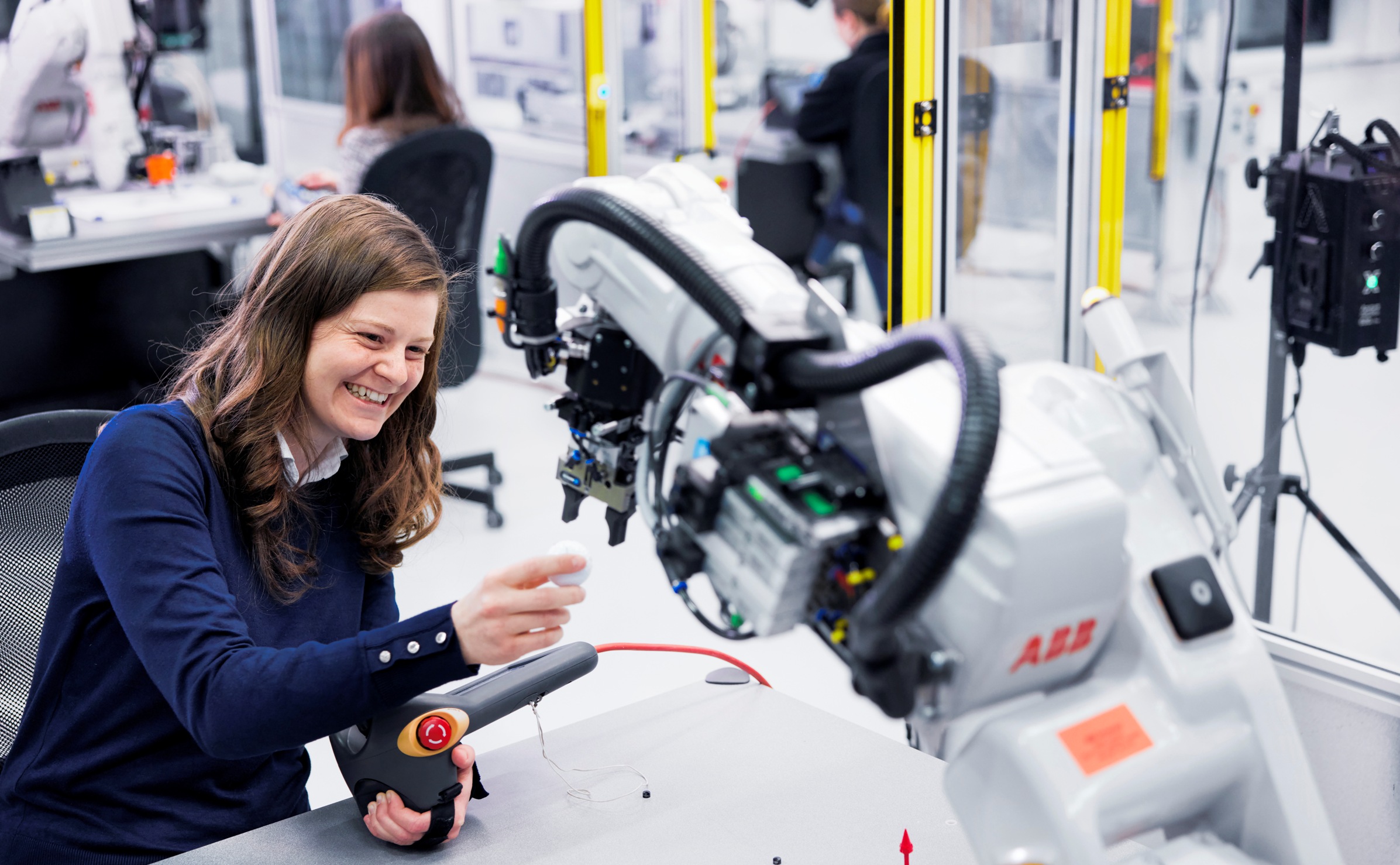ABB survey reveals re-industrialization at risk from global “education gap” in automation
A survey by ABB shows a growing trend in US and European businesses towards re-shoring or nearshoring operations to build resilience in the face of global challenges – but at the same time, a significant education gap in the skills necessary for these strategies to succeed.
According to Sami Atiya of ABB’s Robotics & Discrete Automation Business, robotic automation plays a key role in facing these challenges. “However, we need significant investment in continuous education to prepare our existing and future workforce to thrive in an age of robotics and automation, important not only to prepare for the widespread shifts we are seeing, but to create prosperous societies in the future,” says Atiya.
The majority of the businesses responding to the survey view automation as playing a key role with 75 percent of European and 62 percent of US businesses planning to invest in robotics and automation in the next three years.
Nonetheless, a significant gap was noticed in the education and training needed to ensure the skills necessary for work in the increasingly connected and automated workplaces of the future. Of the global education professionals surveyed, 80 percent believe robotics and automation will shape the future of employment in the next ten years, while only one in four education institutions currently use robots as part of their teaching programmes.
To help bridge the skills gap, ABB has bolstered its global Robotics and Automation education programme with new training centres, including its EUR 100m global innovation and training campus in Austria. The new site, along with other new regional training centres in the UK, Berlin and Brazil expands its training facilities to over 40 sites globally, educating more than 30,000 students from schools, colleges and universities, as well as apprentices and workers each year.
“Change needs to happen now. As companies turn to robotic automation to offset labour shortages, improve efficiency and increase resilience, workers need the skillsets to use automation to perform their jobs and augment their own roles,” concludes Atiya.
- UK manufacturing steps up to COVID-19 crisis - April 2, 2020
- Clustering Innovation - March 12, 2020
- A Global Monitor - March 6, 2020

